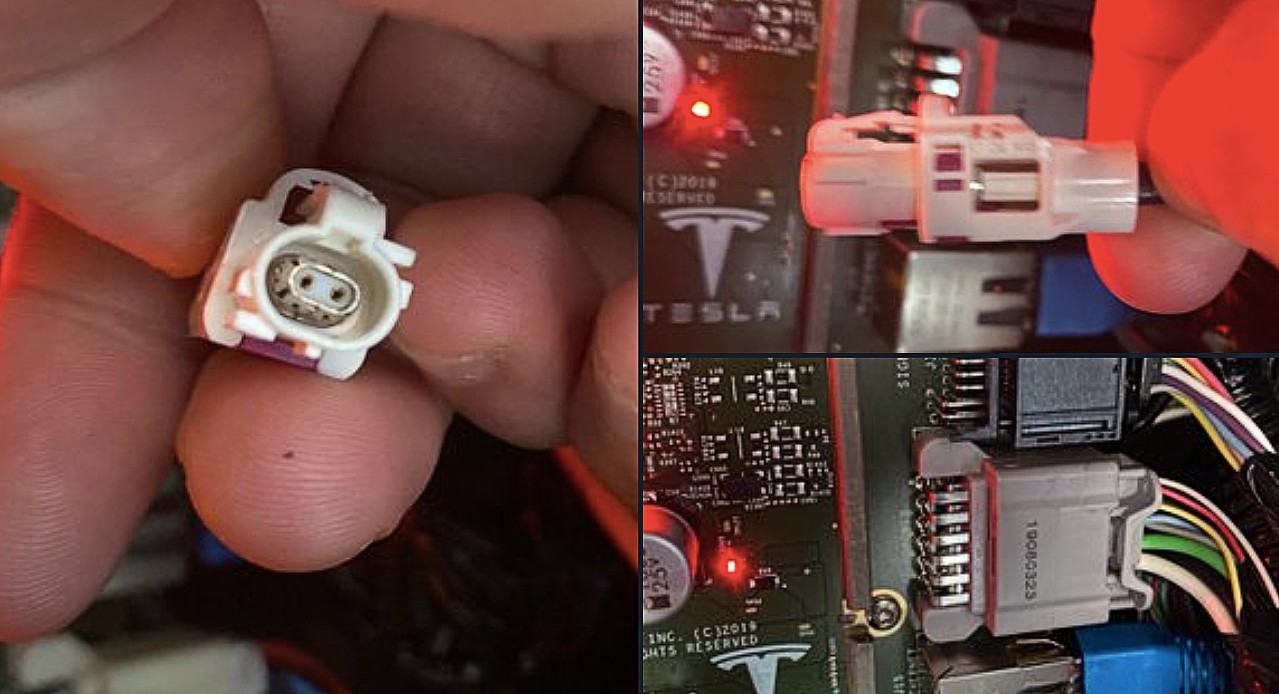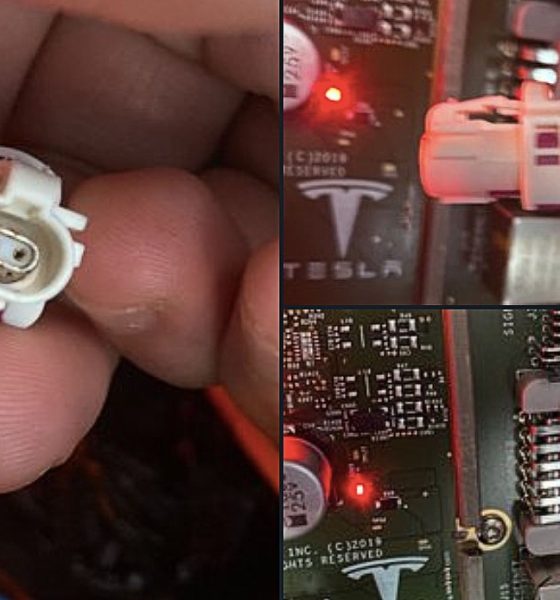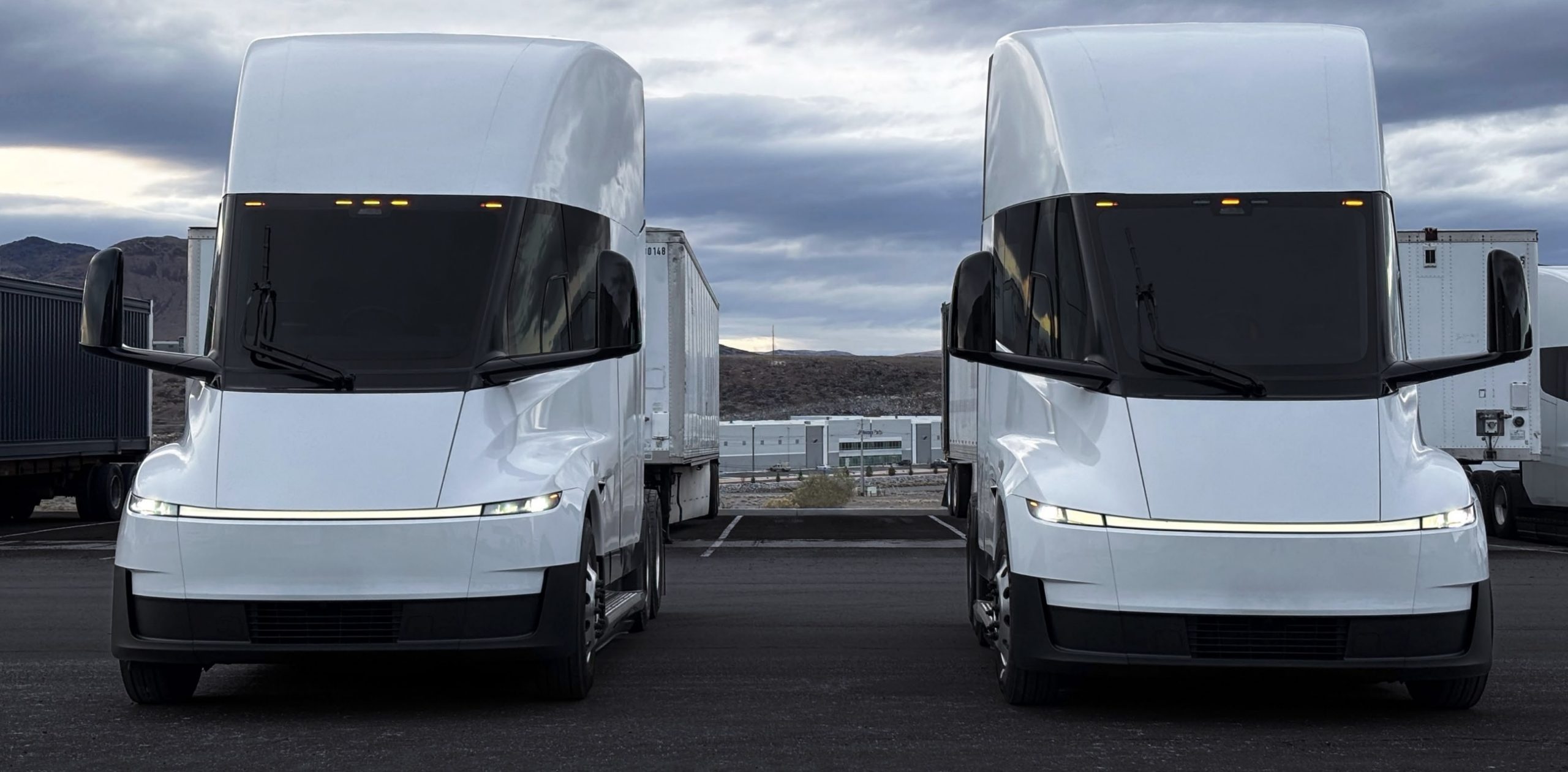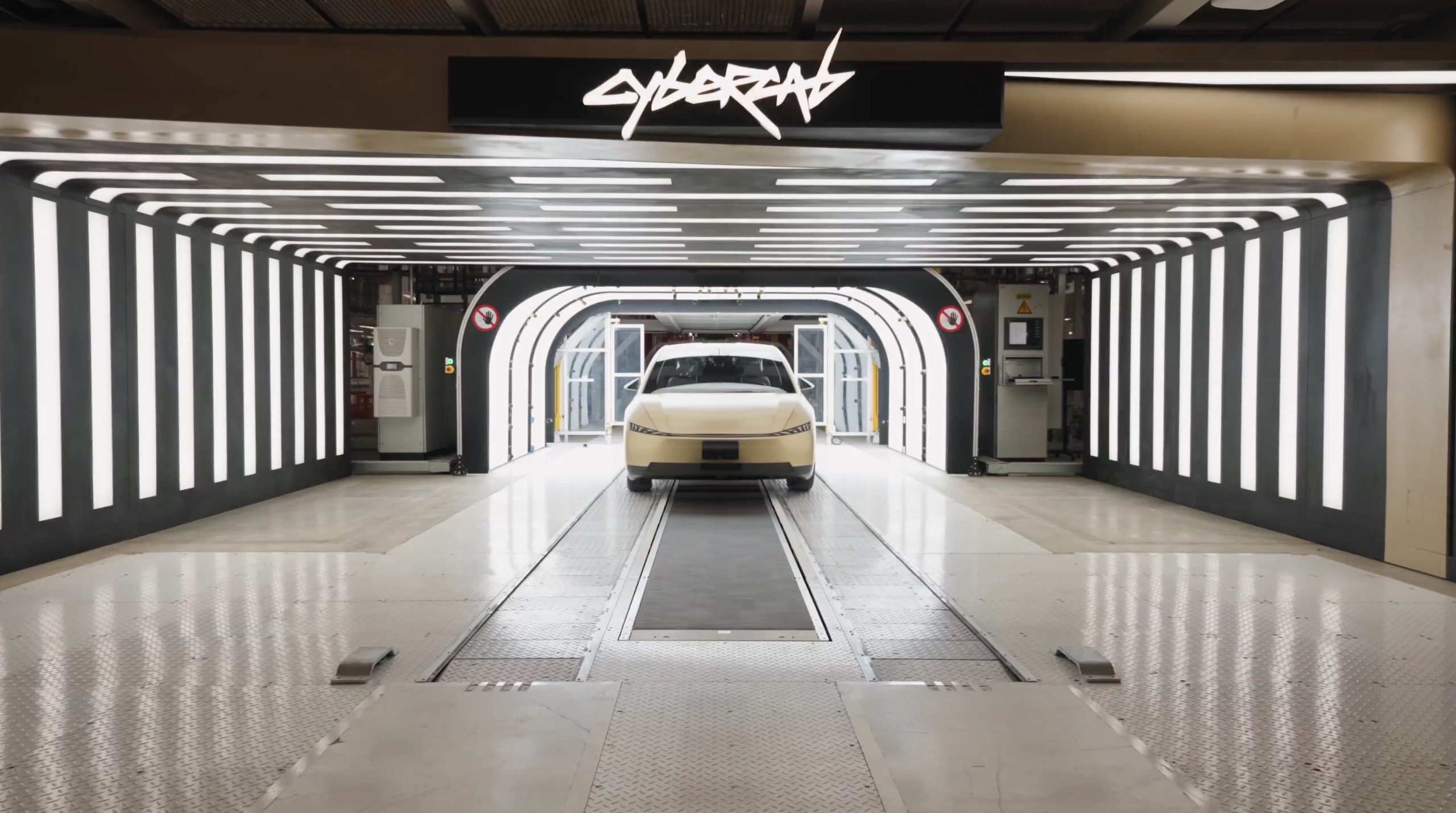

News
Tesla Model Y ‘future proof’ Autopilot-Infotainment link hits two birds with one stone
The Tesla Model Y is proving to be a vehicle that’s loaded to the brim with optimizations. From its wiring to its casting, the Model Y seems to be designed to be as future proof as possible. And if a recent set of tweets from a noted Tesla hacker are any indication, this future proofing may even extend all the way into the ethernet links used in the vehicle’s Autopilot computer and infotainment system.
Tesla owner-hacker @greentheonly recently posted images of computer components used in the Model Y that were evidently different from the ones used in the Model 3. Among these, the most notable change lay in Tesla’s use of upgraded ethernet links for the Autopilot computer and the infotainment system. While the Model 3 is equipped with 100 mbps links, the Model Y was equipped with links that are capable of 1 gigabit speeds. This change also necessitated a harness update in the all-electric crossover.
What is rather interesting is the fact that Tesla does not really need a 1 gigabit ethernet link for its electric cars today, or perhaps even in the near future. This is because the updated component in the Model Y is not related to the performance of Full Self-Driving or Autopilot at all. It is simply the link between Hardware 3 and the Model Y’s infotainment system.
Tesla community members from the r/TeslaMotors subreddit have stated that the 10x improvement in the Model Y’s ethernet link may actually be quite excessive specs-wise. Tesla enthusiast u/ShaidarHaran2 mentioned that it’s challenging to think of a process or task that would require gigabit speeds. Even if Tesla were to roll out improvements in the transmission of virtual display elements like traffic cones, lane lines, and other inner-city driving images to the infotainment system, the Model 3’s 100 mbps links would be more than enough.
Considering that the Model Y’s ethernet links are pretty much overkill with this update, it appears that Tesla may have adopted the computer upgrades primarily due to two potential reasons. One, the change may be motivated by a need to future-proof the all-electric crossover further. And two, the move to 1 gigabit links may partly be due to cost efficiencies. A lot of this may be motivated by the general trend of the tech sector.
Tesla Model 3 owner u/NetBrown of the r/TeslaMotors subreddit, who works as a network engineer, noted that it has become very difficult to find 100 mbps ports at a reasonable price today. Thus, it would actually be more practical for Tesla to use 1 gigabit links for the Model Y considering the costs of the components today, even if it’s a bit overkill in terms of speed. Card
Of course, it should be noted that Tesla is a company that rolls out incremental improvements to its fleet of vehicles as soon as something better is available. While these new computer parts are available in the Model Y now, it would likely be only a matter of time before the same system is adopted to Tesla’s other vehicles like the Model S and Model X. Newer Model 3 sedans may also have adopted these upgraded ethernet links as well, considering that the all-electric sedan shares 75% of its parts with its crossover sibling.

News
Tesla FSD (Supervised) could be approved in the Netherlands next month: Musk
Musk shared the update during a recent interview at Giga Berlin.

Tesla CEO Elon Musk shared that Full Self-Driving (FSD) could receive regulatory approval in the Netherlands as soon as March 20, potentially marking a major step forward for Tesla’s advanced driver-assistance rollout in Europe.
Musk shared the update during a recent interview at Giga Berlin, noting that the date was provided by local authorities.
“Tesla has the most advanced real-world AI, and hopefully, it will be approved soon in Europe. We’re told by the authorities that March 20th, it’ll be approved in the Netherlands,’ what I was told,” Musk stated.
“Hopefully, that date remains the same. But I think people in Europe are going to be pretty blown away by how good the Tesla car AI is in being able to drive.”
Tesla’s FSD system relies on vision-based neural networks trained on real-world driving data, allowing vehicles to navigate using cameras and AI rather than traditional sensor-heavy solutions.
The performance of FSD Supervised has so far been impressive. As per Tesla’s safety report, Full Self-Driving Supervised has already traveled 8.3 billion miles. So far, vehicles operating with FSD Supervised engaged recorded one major collision every 5,300,676 miles.
In comparison, Teslas driven manually with Active Safety systems recorded one major collision every 2,175,763 miles, while Teslas driven manually without Active Safety recorded one major collision every 855,132 miles. The U.S. average during the same period was one major collision every 660,164 miles.
If approval is granted on March 20, the Netherlands could become the first European market to greenlight Tesla’s latest supervised FSD (Supervised) software under updated regulatory frameworks. Tesla has been working to secure expanded FSD access across Europe, where regulatory standards differ significantly from those in the United States. Approval in the Netherlands would likely serve as a foundation for broader EU adoption, though additional country-level clearances may still be required.
Elon Musk
Elon Musk estimates Tesla Semi could reach Europe next year
“We’ve got the Tesla Semi coming out, the heavy truck, and that’ll be going to Europe hopefully next year,” Musk said.

Tesla is preparing to expand its all-electric Semi truck program to Europe, with CEO Elon Musk indicating that the Class 8 vehicle could arrive in the region 2027.
Musk shared his update during an interview about Giga Berlin with plant manager André Thierig, which was posted on X by the official Tesla Manufacturing account.
“We’ve got the Tesla Semi coming out, the heavy truck, and that’ll be going to Europe hopefully next year,” he said.
Tesla has already begun limited production and customer deployments of the Tesla Semi in the United States, with the company working to scale output through the Semi factory near Giga Nevada. Considering Musk’s comments, it appears that a European rollout would be the next phase of the vehicle’s expansion beyond North America.
Musk’s use of the word “hopefully” leaves room for flexibility, but the remark signals that Europe is next in Tesla’s commercial expansion plans.
Musk has consistently argued that electrification should extend beyond passenger vehicles. During the same interview, he reiterated his view that “all ground transport should be electric,” adding that ships, and eventually aircraft, would follow.
The Semi plays a central role in that strategy. Heavy-duty freight remains one of the most emissions-intensive segments of road transport, and European regulators have increasingly pushed for lower-emission commercial fleets.
Tesla recently refreshed the Semi lineup on its official website, listing two variants: Standard and Long Range. The Standard trim offers up to 325 miles of range with an energy consumption rating of 1.7 kWh per mile, while the Long Range version provides up to 500 miles, which should be more than ample for European routes.
Elon Musk
Tesla Cybercab coming next to Giga Berlin, Optimus possibly after
“From a next major product standpoint, I think most likely is the Tesla Cybercab,” Musk said.

Tesla could add the Cybercab and Optimus humanoid robot to the production lineup at Giga Berlin, as per recent comments from CEO Elon Musk.
During a recent interview with Giga Berlin plant manager André Thierig, Musk identified the Cybercab as the most likely next major product for the German factory, with Optimus potentially following after.
“From a next major product standpoint, I think most likely is the Tesla Cybercab,” Musk said. He added that there are also “possibilities of Tesla Optimus” being produced in the facility.
Tesla has already begun production of the Cybercab in Giga Texas, with volume production expected to ramp this year. Based on Musk’s comments, it appears that if conditions align in Europe, Giga Berlin could eventually join that effort.
The CEO’s comments about Optimus coming to Gigafactory Berlin are quite unsurprising too considering that Musk has mentioned in the past that the humanoid robot will likely be Tesla’s highest volume product in the long run.
Giga Berlin will likely be able to produce mass volumes of Optimus, as the Model S and Model X lines being converted to an Optimus line in the Fremont Factory are already expected to produce 1 million units of the humanoid robot annually.
Apart from his comments about the Cybercab and Optimus, Elon Musk also confirmed that Giga Berlin has started ramping battery cell production and will continue expanding Model Y output, particularly as supervised Full Self-Driving (FSD) gains regulatory approvals in Europe.
Taken together, the remarks suggest Berlin’s role could evolve beyond vehicle assembly into a broader multi-product manufacturing hub, not just a regional Model Y plant.








